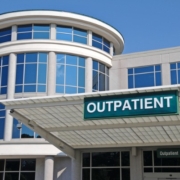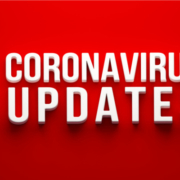Telehealth Expansion for Hospitals
CMS is increasing access to telehealth for Medicare patients. What this means for hospitals is they will be permitted to code and bill during the PHE for services to which allowed physicians and practitioners employed by the hospital perform a face-to-face visit via telehealth service for a registered outpatient of the hospital. The flexibility extended is the physician or practitioner and the patient can be in any location, including home, and the telehealth services provided to the outpatient via audio and visual technology. This service may be coded and billed as the outpatient hospital setting originating site. This includes provider-based outpatient clinics. The outpatient hospital claim will include HCPCS code Q3014 with modifier CR and condition code DR. Here are some examples of services that could be provided to registered outpatients of the hospital:
- Example 1: Patient is followed/managed by the hospital’s outpatient wound care clinic for a healing surgical wound due to a Hip ORIF procedure. The patient is at home due to COVID quarantine and the physician is working from home. The physician performs a telehealth visit (using two-way audio and visual communication) with the patient to evaluate the status of the patient’s surgical wound. The patient’s spouse/caregiver assists with physician’s observation of the wound and the physician reinforces continued cleansing/wound care and indicates no further visits are needed unless patient experiences new problems at the surgical site.
- Example 2: Oncology patient on round 5 of chemotherapy regimen is having difficulty sleeping due to body aches/pain. The patient goes to the oncology center to be evaluated and seek treatment. Due to COVID quarantine, the oncology physician is working from home. The nurse and patient hold a two-way audio and visual visit with the physician. The physician orders additional meds for the patient and the nurse reviews the Rx and discharge instructions with the patient.
Telehealth Audio Only Exception
CMS has indicated they will pay for certain services conducted by audio-only telephone between beneficiaries and their doctors and other clinicians. Now, CMS is broadening that list to include many behavioral health and patient education services. The audio only exception is still only permitted for certain CPT codes used with professional billing. The audio only exception does not apply to outpatient hospital billing.
Hospital Remote Outpatient Rehabilitative Services
Hospital employed physical therapists, occupational therapists, and speech language pathologists are now permitted by CMS to provide certain services via telecommunication technology for a registered outpatient rehabilitation patient under a therapy plan of care. Hospitals and employed therapists will need to review together the codes found in the to ensure only these applicable services are reported for remote services (not all physical medicine codes are eligible under this flexibility). CMS link to the hospital outpatient services document is found below.
Rather than these services be reported as telehealth requiring use of the HCPCS Q code, these services will be reported the same as if the patient was present in the outpatient hospital therapy department. The documentation for the therapy provided will be consistent with current requirements of time but the medical record will need to also reflect the service was provided remotely via telecommunication technology. This will mean the therapist can be present in the therapy department or other temporary expansion location and the patient can be in the beneficiary’s home and the encounter is conducted via two-way audio and video communication.
The outpatient hospital claim will require the applicable therapy code (97110, 97112, 97129, 97130, 97139, 97150, 97161, 97162, 97163, 97164, 97165, 97166, 97167, 97168, 97530, and 97535), therapy modifier, units, modifier CR and condition code DR.
Hospital Remote Outpatient Behavioral Services
Hospital employed counselors or social workers (LPC or LCSW) are now permitted by CMS to provide certain services via telecommunication technology for a registered behavioral health patient under the management of the department’s treating psychiatrist. Hospitals and employed counselors will need to review together the codes found in the to ensure only these applicable services are being provided remotely (not all behavioral health codes are eligible under this flexibility).
As indicated above for remote rehabilitative services, the counselor can be present in the behavioral health department or other temporary expansion location and the patient can be in the beneficiary’s home and the encounter is conducted via two-way audio and video communication.
The outpatient hospital claim will require the applicable behavioral health code (97151, 97152, 97153, 97154, 97155, 97156, 97157, 97158, G0444) with modifier CR and condition code DR.
Of note, CMS posted psychotherapy services (90832-90837, 90847) as an allowable remote telecommunication technology service for Partial Hospitalization Program (PHP) but not under the example hospital outpatient remote services list. CMS does use a clinical example for PBD of the hospital furnishing psychotherapy in the CMS-1531-IFC. We recommend behavioral clinicians check CMS site periodically as the published information is subject to change.
Hospital In-Person Outpatient Therapeutic Services
Section 1135 blanket waivers in place during the COVID-19 PHE allows the patient’s home to be considered an outpatient provider-based department (PBD) of the hospital. Clinical staff of the hospital may furnish in-person services to registered hospital patients, such as chemotherapy, other drug infusions and wound care in person given the nature of the services. These services cannot be furnished by telecommunication technology. During the PHE, the beneficiary’s home is considered a provider-based department of the hospital and under the PHE therapeutic hospital outpatient services required supervision level is general supervision. Hospitals will need to ensure the services provided to the patient are not already covered under another benefit such as home health or hospice.
These services require a health professional to furnish the service (e.g., drug administration) per the physician plan of care or physician order. The hospital could bill for these services as hospital outpatient services, provided the PBD is an on campus or excepted off-campus PBD that relocated to the patient’s home consistent with the extraordinary circumstances relocation exception policy. This is further extended to delivery of therapeutic services in temporary expansion locations, including parking lot tents, converted hotels, or patients’ homes (when they are temporarily designated as part of a hospital).
The hospital medical record encounter note will need to reflect the hospital employed clinician performed the service in a location other than in the hospital outpatient department. The documentation must also reflect what services were performed and if any verbal / phone communication with the treating physician was required to modify a change in the patients plan of care. Any verbal orders will require practitioner authentication in accordance with the COVID-19 Emergency Declaration Waivers for hospitals.
The outpatient hospital claim will require the applicable CPT code for the therapeutic service ordered and performed with modifier CR and condition code DR.
Hospital Outpatient Provider-Based Departments (HOPD)
When any outpatient hospital service that would normally be performed in the hospital outpatient provider-based department (HOPD or PBD), is rendered in another setting such as the patient’s home the hospital will continue to bill these services with modifier PO (excepted items and services) or PN (nonexcepted services) depending on the PBD status during the COVID-19 PHE. If the PBD is partially relocated, during this time, and the PO modifier is billed the PBD will receive the full OPPS rate. The hospital is required to have received an exception under the temporary extraordinary circumstances relocation exception policy to receive the full payment rate. Otherwise, a PBD partially relocated (including patient’s home) will be required to report PN modifier and be paid the PFS-equivalent rate.
The PBD modifiers will be appended first to the applicable CPT/HCPCS code then append the CR modifier in the second position.
Rural Health Clinics (RHC)
CMS has created a new HCPCS code G2025 (distant site telehealth services) that will allow the RHC to provide services as a distant site provider. The RHC is required to bill this code with modifier CG between January 27, 2020, and June 30, 2020. Modifier 95 is considered optional. During this period the RHC will be paid at the all-inclusive rate (AIR) when the HCPCS code appears on the claim. Beginning July 1, 2020, the MAC will automatically reprocess the claims containing code G2025 which will be paid the rate of $92.03. RHCs do not need to resubmit claims for the payment adjustment. Finally, the RHC will no longer have to append modifier CG to code G2025 beginning with distant site services provided July 1, 2020, and after.
We urge providers of service to review CMS rationale to ensure understanding of the requirements addressed in this update.
Sources:
CMS-5531-IFC April 30, 2020 https://www.cms.gov/files/document/covid-medicare-and-medicaid-ifc2.pdf
Go to CMS List of Hospital Outpatient Services as of 4/30/20 https://www.cms.gov/about-cms/emergency-preparedness-response-operations/current-emergencies/coronavirus-waivers
CMS List of Covered Telehealth Services for PHE for the COVID-19 Pandemic as of 4/30/20 https://www.cms.gov/Medicare/Medicare-General-Information/Telehealth/Telehealth-Codes
COVID-19 Frequently Asked Questions (FAQs) on Medicare Fee-for-Service (FFS) Billing as of 4/29/20 https://www.cms.gov/files/document/03092020-covid-19-faqs-508.pdf
Summary of the COVID-19 Emergency Declaration Blanket Waivers for Health Care Providers as of 4/29/20 https://www.cms.gov/files/document/summary-covid-19-emergency-declaration-waivers.pdf
New and Expanded Flexibilities for RHC and FQHC During COVID-19 PHE https://www.cms.gov/regulations-and-guidanceguidancetransmittals2020-transmittals/se20016
Rural Health Clinics (RHCs) and Federally Qualified Health Centers (FQHCs): CMS Flexibilities to Fight COVID-19 https://www.cms.gov/files/document/covid-rural-health-clinics.pdf










